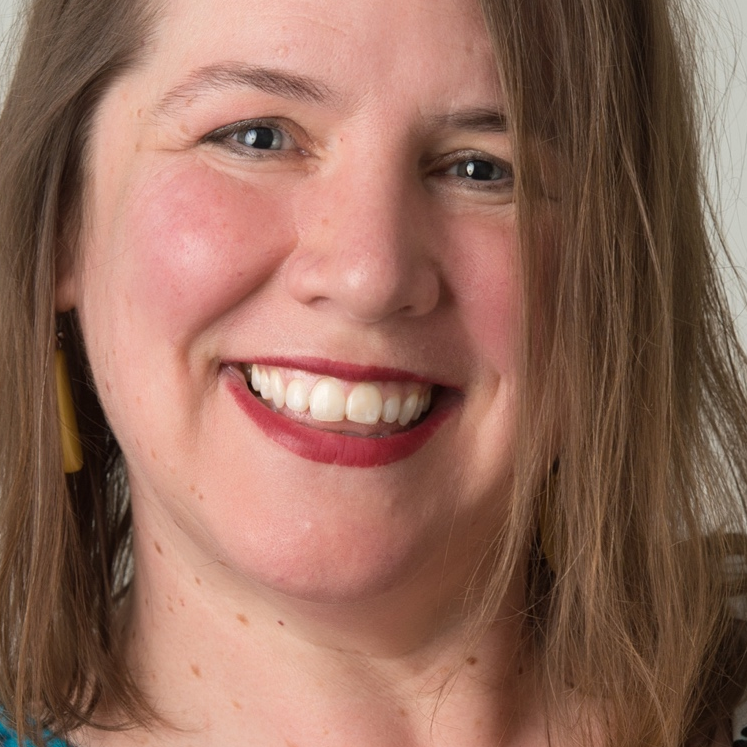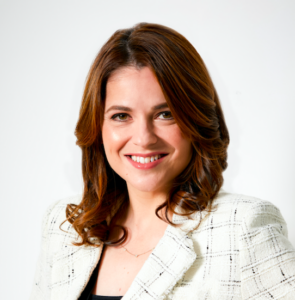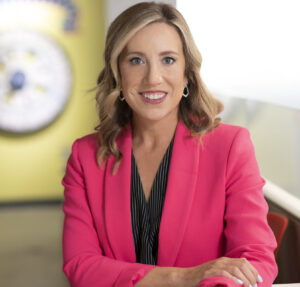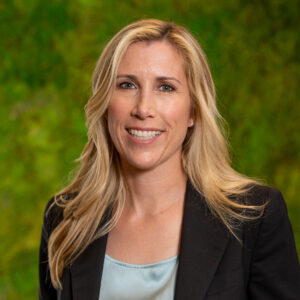6 questions with: American Psychological Association’s Alicia C. Aebersold
Alicia C. Aebersold shares why shortcuts are the communications challenge that keeps her up at night.

Alicia C. Aebersold assumed the role of the American Psychological Association’s (APA) inaugural chief communications officer in September 2017. With over 140,000 members, including researchers, educators, clinicians, consultants, and students, APA plays a pivotal role in the field of psychology.
Leading a diverse 50-member communications team, Aebersold draws inspiration from the advice her father imparted during her time as a drum major in high school. This guidance has been instrumental in fostering success within an outcome-driven environment.
Ahead of her session at Ragan’s upcoming Future of Communications conference, we spoke with Aebersold to get her take on the future of the communications industry.
What book, podcast or other media do you recommend to other comms pros?
My job is to understand human behavior and tell stories, so I try to be an avid consumer of books and podcasts that elevate both those things. Real stories make me see perspectives I have missed. Brian Doyle in “One Long River of Song” and Ross Gay in “The Book of Delights” patiently share the smallest moments of personal experience in ways that make me think differently and want to be a better human. On the less curated end of storytelling, “The Moth Radio Hour” podcast offers up compelling, unproduced voices sharing stories that regularly surprise me. And podcasts like “Speaking of Psychology” and “Hidden Brain” put human behavior into fascinating context.
What’s your favorite tool you use regularly for work?
This is pretty low-tech, but I keep a running idea list in Microsoft Notes for each person I work with regularly, so I have a place to jot down an idea I want to share with them or a follow-up question I want to remember to ask about an idea they gave me. It saves me from being the person who sends emails as I think of things and allows me to focus my energy on listening to people when I meet with them, instead of surreptitiously searching my emails for the thing I want to talk to them about.
What excites you most about the future of communications?
The more we are inundated with content, pummeled with metrics that mean little post by post, and saturated with misinformation, the more we need communicators to slice through the noise and elevate both the science and the real stories. I see endless opportunities for our field to make a real difference, especially in the world we live in now, and that inspires me every day.
What communications challenge keeps you up at night?
Shortcuts. Quality work that has real impact requires thought and time and expertise. That is a continuous conversation in our field – why we need to do the research, or run concepts by the intended audience, or test the idea, and that even if it slows progress, it will result in something better.
What’s the biggest challenge you’ve overcome in your career?
At one point in my career, I felt that my then-job was changing me, and not for the better. It was what we now call a “toxic workplace,” and I could feel the toxicity impacting me, making me more uncertain, making me less willing to take risks, and making me more likely to just check a box because it was easier than fighting for things.
I couldn’t walk away without a new job. So I decided that I would focus on what I COULD control – ensuring that the culture in my team was the culture I believed in. We focused on building a feeling of safety, encouraging risk-taking and creativity, probing the staff to offer the wild idea and deliver the surprising impact. I chose to communicate upward about outcomes, not processes, and tried to take the hits myself when leadership was upset. That team delivered some incredible results in part because I focused on what I could control, not on wasting time raging against the machine.
What is the best advice you’ve ever gotten?
My senior year of high school I was the drum major for our marching band. One night I came home from practice and started complaining to my dad about how the drum line wasn’t listening to me, how I couldn’t get them to do what I told them to do. And he said, “You aren’t a leader just because you have a big fuzzy hat.”
It is evergreen advice. You are a leader when people know you are truly there not to march around in front of them and own the spotlight, but to support them and help them succeed. I did like that hat, though.
Join Alicia C. Aebersold at Ragan’s Future of Communications Conference on Nov. 6-8. She will speak alongside communications leaders from AARP, Ben & Jerry’s, Lockheed Martin Missiles and Fire Control and more.
Isis Simpson-Mersha is a conference producer/ reporter for Ragan. Follow her on LinkedIn.







